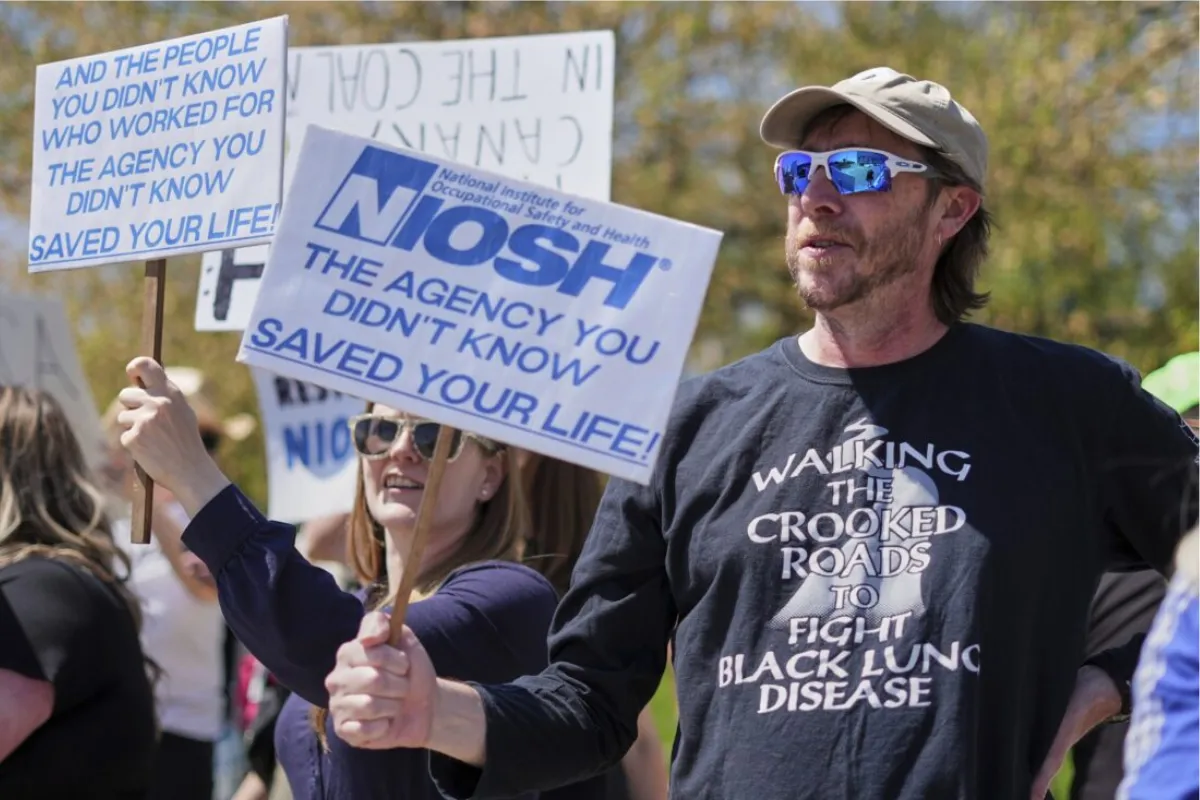Federal health officials have officially reinstated dozens of jobs at the National Institute for Occupational Safety and Health (NIOSH) in Morgantown, following a judge’s order to reverse layoffs that jeopardized key health protections for coal miners.
On Monday, attorneys for U.S. Health and Human Services (HHS) Secretary Robert F. Kennedy Jr. confirmed that they had complied with a preliminary injunction issued by U.S. District Judge Irene Berger. The court had ordered HHS to stop job cuts within NIOSH’s Respiratory Health Division and restore its full operations.
The injunction was issued on May 13 in response to a lawsuit filed by retired coal miner Harry Wiley from Kanawha County. Wiley argued that the layoffs disrupted health services legally guaranteed to miners under the Federal Mine Safety and Health Act. Specifically, the layoffs threatened the Coal Workers’ Health Surveillance Program (CWHSP), which monitors miners for black lung disease.
“The Reductions in Force (RIFs) in the Respiratory Health Division have been rescinded,” Assistant U.S. Attorney Fred Westfall wrote in the filing. He added that HHS would not pause or disrupt any of the miner health protections required by Congress.
Kennedy had initiated the layoffs on April 1, targeting around 2,400 jobs nationwide, including roughly 200 in Morgantown. However, after Judge Berger’s injunction and legal pushback, HHS reversed course. By mid-May, the department had revoked RIF notices for over 300 employees, including 50 in the respiratory division.
NIOSH Director John Howard included a sworn statement confirming that the affected employees were notified by email on May 13 that their jobs were no longer on the chopping block. NIOSH immediately began working to restore the division’s operations.
That included reestablishing contracts with physicians who read chest X-rays for black lung diagnosis, fixing x-ray equipment, reopening lines of communication with mine operators and stakeholders, and once again accepting medical submissions from miners like Wiley.
Howard noted that NIOSH had already removed a notice from its website stating the CWHSP was paused. The program is now back in action, collecting new chest X-rays, spirometry test data, and other miner health information.
In a related court filing on May 23, the federal government argued that because the program is now operational and Wiley has been able to submit medical evidence, his original legal claim is no longer valid. They’ve asked the judge to dismiss the case.
For now, the court-ordered restoration ensures that miners will continue to have access to vital health screenings and services — a win for coal communities relying on these federal protections.
















